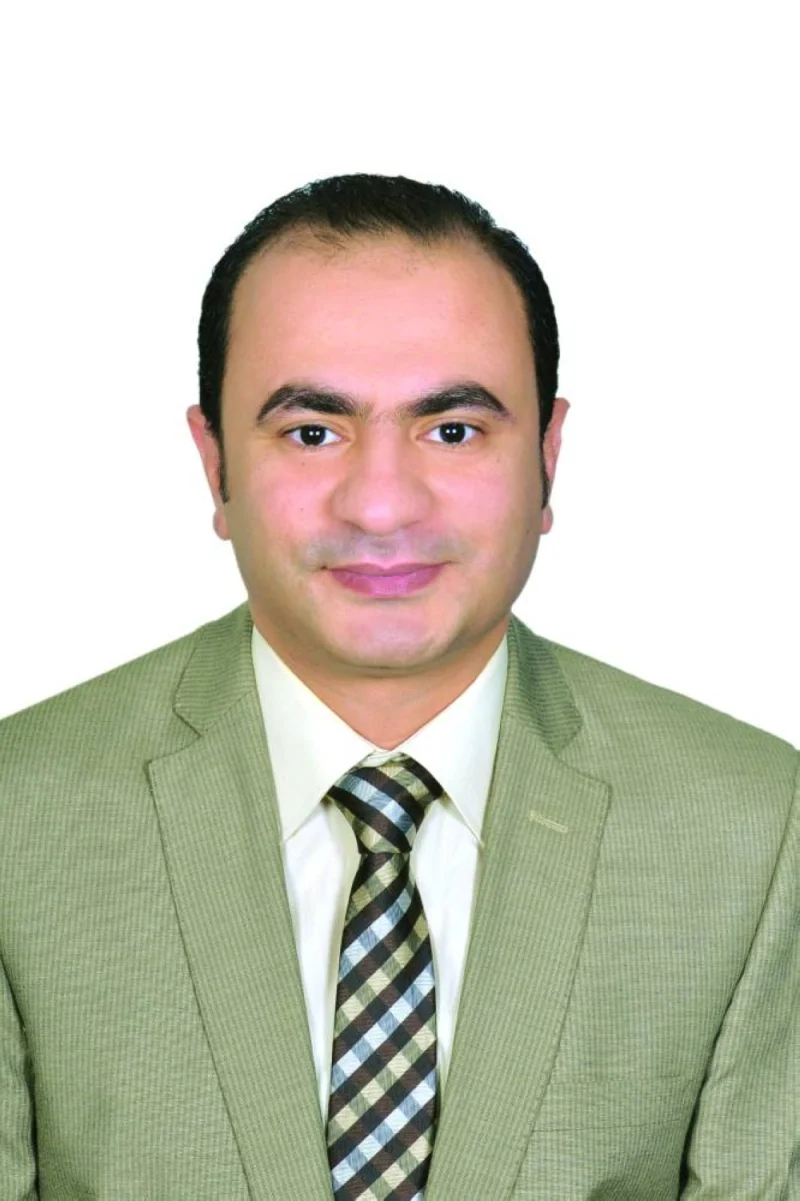
403
Sorry!!
Error! We're sorry, but the page you were looking for doesn't exist.
PHCC Physician Highlights Importance Of Calcium For Balanced Health
(MENAFN- Gulf Times) Calcium deficiency can lead to serious health issues, most notably osteoporosis-especially among children, adults, and the elderly, pointed out a physician at the Primary Health Care Corporation (PHCC).
Dr Mahmoud Mohammad Elderiny, family physician at Airport Health Centre, explained that bones serve as the body's main calcium reservoir and regenerate their cells approximately every ten years, requiring consistently adequate calcium levels throughout life.
Calcium is an essential mineral for the growth and health of bones and teeth. It also plays a crucial role in muscle and nerve function, transmitting nerve signals, regulating blood clotting, and helping to lower blood pressure. Since the body cannot produce calcium, it is necessary to obtain it from food or dietary supplements when needed.
“Bone density peaks between the ages of 25 and 35, then gradually decreases with age, leading to weakened bones and a higher risk of fractures. Since the digestive system absorbs only 15–20% of the calcium in food, the role of vitamin D in enhancing this absorption becomes particularly important,” said the physician.
Dr Elderiny adds that if the diet does not include enough calcium, the body begins to draw calcium from the bones to make up for the deficiency, leading to bone fragility.
Beyond its vital role for bones, calcium helps regulate muscle contractions, aids in blood clotting, reduces the risk of high blood pressure, improves cholesterol levels, supports the development and health of teeth, and helps ease premenstrual symptoms.
Calcium can be obtained from a variety of natural sources, including: Dairy products such as milk, cheese, and yogurt; green leafy vegetables; fish such as salmon and sardines; fortified foods such as juices and breakfast cereals and dietary supplements.
Tooth loss, gum irritation, osteoporosis, muscle cramps and tingling, numbness in limbs, irregular heartbeat, memory issues and confusion, fatigue and dizziness, difficulty swallowing, spinal pain, depression and hallucinations, hair breakage, weak nails, premenstrual symptoms, and loss of height due to bone thinning.
According to Dr Elderiny, calcium deficiency may be linked to several factors. They include: Vitamin D deficiency, which impairs calcium absorption; gastrointestinal diseases like Crohn's disease or celiac disease; medical conditions such as kidney failure, liver or pancreatic inflammation, or hypoparathyroidism; Weight loss or stomach removal surgeries and certain medications including corticosteroids, diuretics, antacids, and chemotherapy drugs.
Calcium deficiency treatment begins by replenishing calcium through diet and supplements. Types of supplements include: Calcium carbonate; calcium citrate and calcium phosphate.
However, calcium supplements should not be taken without medical advice, as excessive intake can lead to complications like kidney stones and heart disease, Dr Elderiny added.
Dr Mahmoud Mohammad Elderiny, family physician at Airport Health Centre, explained that bones serve as the body's main calcium reservoir and regenerate their cells approximately every ten years, requiring consistently adequate calcium levels throughout life.
Calcium is an essential mineral for the growth and health of bones and teeth. It also plays a crucial role in muscle and nerve function, transmitting nerve signals, regulating blood clotting, and helping to lower blood pressure. Since the body cannot produce calcium, it is necessary to obtain it from food or dietary supplements when needed.
“Bone density peaks between the ages of 25 and 35, then gradually decreases with age, leading to weakened bones and a higher risk of fractures. Since the digestive system absorbs only 15–20% of the calcium in food, the role of vitamin D in enhancing this absorption becomes particularly important,” said the physician.
Dr Elderiny adds that if the diet does not include enough calcium, the body begins to draw calcium from the bones to make up for the deficiency, leading to bone fragility.
Beyond its vital role for bones, calcium helps regulate muscle contractions, aids in blood clotting, reduces the risk of high blood pressure, improves cholesterol levels, supports the development and health of teeth, and helps ease premenstrual symptoms.
Calcium can be obtained from a variety of natural sources, including: Dairy products such as milk, cheese, and yogurt; green leafy vegetables; fish such as salmon and sardines; fortified foods such as juices and breakfast cereals and dietary supplements.
Tooth loss, gum irritation, osteoporosis, muscle cramps and tingling, numbness in limbs, irregular heartbeat, memory issues and confusion, fatigue and dizziness, difficulty swallowing, spinal pain, depression and hallucinations, hair breakage, weak nails, premenstrual symptoms, and loss of height due to bone thinning.
According to Dr Elderiny, calcium deficiency may be linked to several factors. They include: Vitamin D deficiency, which impairs calcium absorption; gastrointestinal diseases like Crohn's disease or celiac disease; medical conditions such as kidney failure, liver or pancreatic inflammation, or hypoparathyroidism; Weight loss or stomach removal surgeries and certain medications including corticosteroids, diuretics, antacids, and chemotherapy drugs.
Calcium deficiency treatment begins by replenishing calcium through diet and supplements. Types of supplements include: Calcium carbonate; calcium citrate and calcium phosphate.
However, calcium supplements should not be taken without medical advice, as excessive intake can lead to complications like kidney stones and heart disease, Dr Elderiny added.

Legal Disclaimer:
MENAFN provides the
information “as is” without warranty of any kind. We do not accept
any responsibility or liability for the accuracy, content, images,
videos, licenses, completeness, legality, or reliability of the information
contained in this article. If you have any complaints or copyright
issues related to this article, kindly contact the provider above.
















Comments
No comment